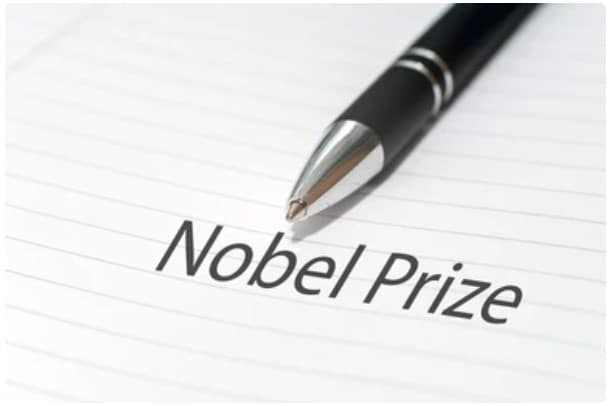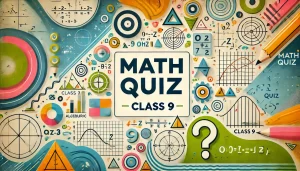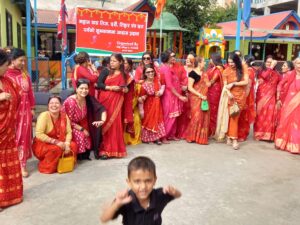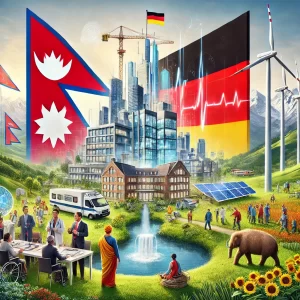Nobel Prize
- Who is credited with founding the Nobel Prizes?
a) Alfred Nobel
b) Marie Curie
c) Thomas Edison
d) Albert Einstein - In which field are Nobel Prizes NOT awarded?
a) Physics
b) Literature
c) Mathematics
d) Medicine - Which Nobel Prize is awarded for contributions to world peace?
a) Nobel Prize in Physics
b) Nobel Prize in Literature
c) Nobel Peace Prize
d) Nobel Prize in Chemistry - Who was the youngest Nobel Laureate ever, receiving the Peace Prize at the age of 17?
a) Malala Yousafzai
b) Nelson Mandela
c) Martin Luther King Jr.
d) Albert Schweitzer - Which country has the most Nobel Laureates in history?
a) United States
b) Germany
c) France
d) United Kingdom - In which city are the Nobel Prizes for Physics, Chemistry, and Medicine typically awarded?
a) Paris
b) New York City
c) Stockholm
d) Geneva - Who received the Nobel Prize in Chemistry twice, once for the discovery of radium and polonium and later for her work on radioactivity?
a) Thomas Edison
b) Isaac Newton
c) Marie Curie
d) Charles Darwin - The Nobel Prize in Literature is awarded in which language?
a) English
b) French
c) Swedish
d) It varies each year - Which Nobel Prize is associated with advancements in economic sciences?
a) Nobel Prize in Medicine
b) Nobel Prize in Physics
c) Nobel Prize in Chemistry
d) Sveriges Riksbank Prize in Economic Sciences in Memory of Alfred Nobel - Who was awarded the Nobel Prize for his theory of relativity in 1921?
a) Albert Einstein
b) Max Planck
c) Niels Bohr
d) Werner Heisenberg - Which Nobel Prize category was established later, in 1968, and is not one of the original Nobel Prizes?
a) Nobel Prize in Physics
b) Nobel Peace Prize
c) Nobel Prize in Literature
d) Nobel Memorial Prize in Economic Sciences - The Nobel Prize for Physics was awarded to the team that discovered the Higgs boson in which year?
a) 2008
b) 2013
c) 1997
d) 1985 - Who was the first woman to win a Nobel Prize, receiving it in both Physics and Chemistry?
a) Rosalind Franklin
b) Marie Curie
c) Dorothy Crowfoot Hodgkin
d) Barbara McClintock - Which Nobel Prize is awarded for outstanding contributions to the field of literature?
a) Nobel Prize in Peace
b) Nobel Prize in Chemistry
c) Nobel Prize in Literature
d) Nobel Prize in Physics - Which Nobel Prize category honors achievements in the field of medicine or physiology?
a) Nobel Prize in Medicine
b) Nobel Prize in Chemistry
c) Nobel Prize in Physics
d) Nobel Prize in Literature - Who is the only person to have been awarded Nobel Prizes in two different scientific fields?
a) Max Planck
b) Linus Pauling
c) Werner Heisenberg
d) Richard Feynman - Which organization is responsible for selecting the Nobel Peace Prize laureates?
a) United Nations
b) European Union
c) Nobel Peace Prize Committee
d) Norwegian Nobel Committee - The Nobel Prize in Chemistry was awarded for the discovery of which elements?
a) Hydrogen and Oxygen
b) Radium and Polonium
c) Carbon and Silicon
d) Gold and Silver - Who is known for refusing the Nobel Prize for Literature in 1964?
a) Ernest Hemingway
b) Leo Tolstoy
c) Jean-Paul Sartre
d) F. Scott Fitzgerald - Which Nobel Prize is awarded for significant contributions to the field of economics?
a) Nobel Prize in Physics
b) Nobel Prize in Chemistry
c) Nobel Peace Prize
d) Sveriges Riksbank Prize in Economic Sciences in Memory of Alfred Nobel - Who was awarded the Nobel Peace Prize for his role in negotiating the Camp David Accords in 1978?
a) Nelson Mandela
b) Yasser Arafat
c) Anwar Sadat
d) Jimmy Carter - The Nobel Prize in Physiology or Medicine was awarded for the discovery of which life-saving antibiotic?
a) Penicillin
b) Streptomycin
c) Tetracycline
d) Erythromycin - Who received the Nobel Prize in Physics for his work on the photoelectric effect in 1921?
a) Max Planck
b) Werner Heisenberg
c) Niels Bohr
d) Albert Einstein - Which Nobel Prize is awarded for advancements in the field of peace and disarmament?
a) Nobel Prize in Physics
b) Nobel Peace Prize
c) Nobel Prize in Chemistry
d) Nobel Prize in Medicine - Who won the Nobel Prize in Literature for his epic novel “One Hundred Years of Solitude”?
a) Gabriel García Márquez
b) Pablo Neruda
c) Mario Vargas Llosa
d) Julio Cortázar - The Nobel Prize in Chemistry is awarded for contributions to which scientific field?
a) Geology
b) Biology
c) Chemistry
d) Astronomy - Who was awarded the Nobel Prize in Physics for the discovery of radioactivity?
a) Pierre Curie
b) Antoine Henri Becquerel
c) Wilhelm Röntgen
d) Enrico Fermi - Which Nobel Prize is awarded for advancements in the field of economics?
a) Nobel Prize in Physics
b) Nobel Prize in Chemistry
c) Nobel Peace Prize
d) Sveriges Riksbank Prize in Economic Sciences in Memory of Alfred Nobel - Who was awarded the Nobel Prize in Peace for his efforts in ending the Yugoslav Wars?
a) Angela Merkel
b) Nelson Mandela
c) Kofi Annan
d) Slobodan Milošević - Which Nobel Prize is awarded for outstanding contributions to the field of literature?
a) Nobel Prize in Peace
b) Nobel Prize in Chemistry
c) Nobel Prize in Literature
d) Nobel Prize in Physics - Who is known for refusing the Nobel Prize in Literature in 1958?
a) Jean-Paul Sartre
b) Ernest Hemingway
c) Gabriel García Márquez
d) William Faulkner - Which Nobel Prize category honors achievements in the field of medicine or physiology?
a) Nobel Prize in Medicine
b) Nobel Prize in Chemistry
c) Nobel Prize in Physics
d) Nobel Prize in Literature - Who is the only person to have been awarded Nobel Prizes in two different scientific fields?
a) Max Planck
b) Linus Pauling
c) Werner Heisenberg
d) Richard Feynman - Which organization is responsible for selecting the Nobel Peace Prize laureates?
a) United Nations
b) European Union
c) Nobel Peace Prize Committee
d) Norwegian Nobel Committee - The Nobel Prize in Chemistry was awarded for the discovery of which elements?
a) Hydrogen and Oxygen
b) Radium and Polonium
c) Carbon and Silicon
d) Gold and Silver - Who is known for refusing the Nobel Prize for Literature in 1964?
a) Ernest Hemingway
b) Leo Tolstoy
c) Jean-Paul Sartre
d) F. Scott Fitzgerald - Which Nobel Prize is awarded for significant contributions to the field of economics?
a) Nobel Prize in Physics
b) Nobel Prize in Chemistry
c) Nobel Peace Prize
d) Sveriges Riksbank Prize in Economic Sciences in Memory of Alfred Nobel - Who was awarded the Nobel Peace Prize for his role in negotiating the Camp David Accords in 1978?
a) Nelson Mandela
b) Yasser Arafat
c) Anwar Sadat
d) Jimmy Carter - The Nobel Prize in Physiology or Medicine was awarded for the discovery of which life-saving antibiotic?
a) Penicillin
b) Streptomycin
c) Tetracycline
d) Erythromycin - Who received the Nobel Prize in Physics for his work on the photoelectric effect in 1921?
a) Max Planck
b) Werner Heisenberg
c) Niels Bohr
d) Albert Einstein - Which Nobel Prize is awarded for advancements in the field of peace and disarmament?
a) Nobel Prize in Physics
b) Nobel Peace Prize
c) Nobel Prize in Chemistry
d) Nobel Prize in Medicine - Who won the Nobel Prize in Literature for his epic novel “One Hundred Years of Solitude”?
a) Gabriel García Márquez
b) Pablo Neruda
c) Mario Vargas Llosa
d) Julio Cortázar - The Nobel Prize in Chemistry is awarded for contributions to which scientific field?
a) Geology
b) Biology
c) Chemistry
d) Astronomy - Who was awarded the Nobel Prize in Physics for the discovery of radioactivity?
a) Pierre Curie
b) Antoine Henri Becquerel
c) Wilhelm Röntgen
d) Enrico Fermi - Which Nobel Prize is awarded for advancements in the field of economics?
a) Nobel Prize in Physics
b) Nobel Prize in Chemistry
c) Nobel Peace Prize
d) Sveriges Riksbank Prize in Economic Sciences in Memory of Alfred Nobel - Who was awarded the Nobel Prize in Peace for his efforts in ending the Yugoslav Wars?
a) Angela Merkel
b) Nelson Mandela
c) Kofi Annan
d) Slobodan Milošević - Which Nobel Prize category honors achievements in the field of medicine or physiology?
a) Nobel Prize in Medicine
b) Nobel Prize in Chemistry
c) Nobel Prize in Physics
d) Nobel Prize in Literature - Who is the only person to have been awarded Nobel Prizes in two different scientific fields?
a) Max Planck
b) Linus Pauling
c) Werner Heisenberg
d) Richard Feynman - Which organization is responsible for selecting the Nobel Peace Prize laureates?
a) United Nations
b) European Union
c) Nobel Peace Prize Committee
d) Norwegian Nobel Committee - The Nobel Prize in Chemistry was awarded for the discovery of which elements?
a) Hydrogen and Oxygen
b) Radium and Polonium
c) Carbon and Silicon
d) Gold and Silver





